Growing with Climate Change: Adaptation and Innovation in Agriculture
2014
Nov 12th
At German Science Center (DWZ), 11 Al-Saleh Ayoub Street, Zamalek, Cairo
Limited to seven percent or less of the country’s total land area, Egypt’s agricultural landscape is threatened by the repercussions of climate change, desertification, urban expansion,
soil depletion, and looming water scarcity. Outside of the Nile river valley and scattered fertile pockets in the desert oases, the vast majority of land is desert: rocky, parched and unable to support conventional farming.
During the 25th Cairo Climate Talks, public and private sector experts explored the implications of climate change on agriculture and the adaptation measures being employed in Egypt and abroad.
Researchers and private farmers are already working to develop biological controls, stress-resistant crops and innovative farming techniques such as aquaponics. Adapted water management and irrigation systems to reduce loss also come into play as sea-level rise and dwindling Nile resources threaten agricultural lands.
German Ambassador Hansjörg Haber opened the talks by saying: “The collaboration of policy-makers, academics and entrepreneurs is essential to mitigate the consequences of climate change. Public panels like this one offer an opportunity to bring these different stakeholders together, while raising public awareness at the same time: An essential step is to make consumers — who have often lost the personal link to agriculture — aware of the scarcity of food and water in order to reduce waste as well as of the value of organically grown food.”
Hany El Kateb, Scientific Advisor to the Egyptian Presidency and Senior Scientist at the Technische Universitaet Muenchen, advocated combining technological advances and innovation with time-tested solutions such as permaculture that farmers have employed for hundreds of years.
“A lot of places are growing monoculture and these systems are susceptible to climate change. We really have to think of a system worldwide that can be stable and resilient … We should not think only of one crop, but of a mix of crops and I think the Egyptian government and the president are interested in such development of the agricultural sector.”
Faris Farrag, founder and CEO of Egypt’s largest aquaponics farm, is trying to find that intersection of technology, engineering and natural farming techniques. Located on rocky, sandy terrain along the Cairo-Alexandria Road, Bustan Aquaponics produces high quality tilapia and leafy greens from a sustainable, soil-less built system without using pesticides or fertilizer.
The system employs the symbiotic relationship between fish and plants to recycle and add nutrients to the water, all using less energy, land and water than conventional farming.
Though the start-up is only about three years old, some of its principles can be applied to large-scale farming if the right incentives are put in place, Farrag said.
“The old argument of ‘it’s more expensive because it’s organic’ has been disproven. It’s more about education and a political will to move subsidies around to remove the disadvantages for people trying to do this kind of work in a market that is fixed for large chemical, corporate, and fertilizer companies,” he said. “It is not fair at all what we have to compete with in agribusiness.”
Resource management, whether through innovative farming techniques, better on-the-ground coordination, or crop selection is crucial.
“Egypt has an energy problem, so why not look at promoting renewable energy and using water to cool a solar power plant [rather than growing water-intensive crops],” said panelist Dr. Martin Keulertz, Postdoctoral Research Associate at the Purdue University Department for Agricultural and Biological Engineering. “If Egypt manages to diversify its economy then income will rise and Egypt will be much more able to buy more on global market and perhaps even become an energy exporter. So my question is to what extent interdependency between natural resources is an opportunity?”
The stark reality is, “Egypt will never have enough water to produce all the food it needs for its population,” said panelist Dr. Ariane Borgstedt, Program Coordinator of the Egyptian-German
Water Management Reform Program within Deutsche Gesellschaft für Internationale Zusammenarbeit (GIZ).
Her organization is working on public-private partnership programs, among others, to foster community cooperation among farmers in the Nile Delta. Together they work out water-sharing agreements so farmers can fairly distribute their water resources and improve the reliability of their supply.
“Working in Yemen and Jordan you directly see much more water scarcity than when you are in Egypt sitting next to the Nile River. Bringing this perception [of resource limitation] to people is difficult,” Dr. Borgstedt said. “It needs a very comprehensive approach through schools and education.”
Egypt also needs better monitoring and enforcement systems to prevent environmental and manmade factors from compromising agricultural lands, said panelist and Professor of Environmental Studies at Alexandria University Dr. Mohamed El Raey.
“Climate change increases extreme weather events in frequency and severity and duration so this will bring heat waves, floods, dust storms, and in turn, affect the crop productivity and the land,” he said. “In addition, the saltwater intrusion that goes underneath the coastal area will affect the water table, increasing the salinity of water. Higher soil salinity will also reduce productivity and quality of crops, which will affect the health of the population.”
Understanding the complex interplay of energy, water and agriculture and the limitations of our natural resources is critical to ensuring sustainable development and food security in the future.
“I would argue this is a task for the next generation; we need to realize that we don’t have as much as we use to, that this is the end of abundance, not only in Egypt but globally,” said Dr. Martin.
“Every single fruit or salad you’re throwing away here in Egypt, you’re throwing away the future. It’s not just here; it’s an issue across the world.”
Meet our Panelists
Dr. Martin Keulertz
Postdoctoral Research Associate, Purdue University, Department for Agricultural and Biological Engineering
Dr. Mohamed El Raey
Professor of Environmental Studies, Alexandria University
Faris Farrag
Founder and Owner of Bustan Aquaponics Farm
Dr. Ariane Borgstedt
Program Coordinator of the Egyptian-German Water Management Reform Program, GIZ
Meet our Moderators
Mr. Ahmed Sedky
expert on sustainable and renewable energy systems and solutions
Venue / location
At German Science Center (DWZ), 11 Al-Saleh Ayoub Street, Zamalek, Cairo
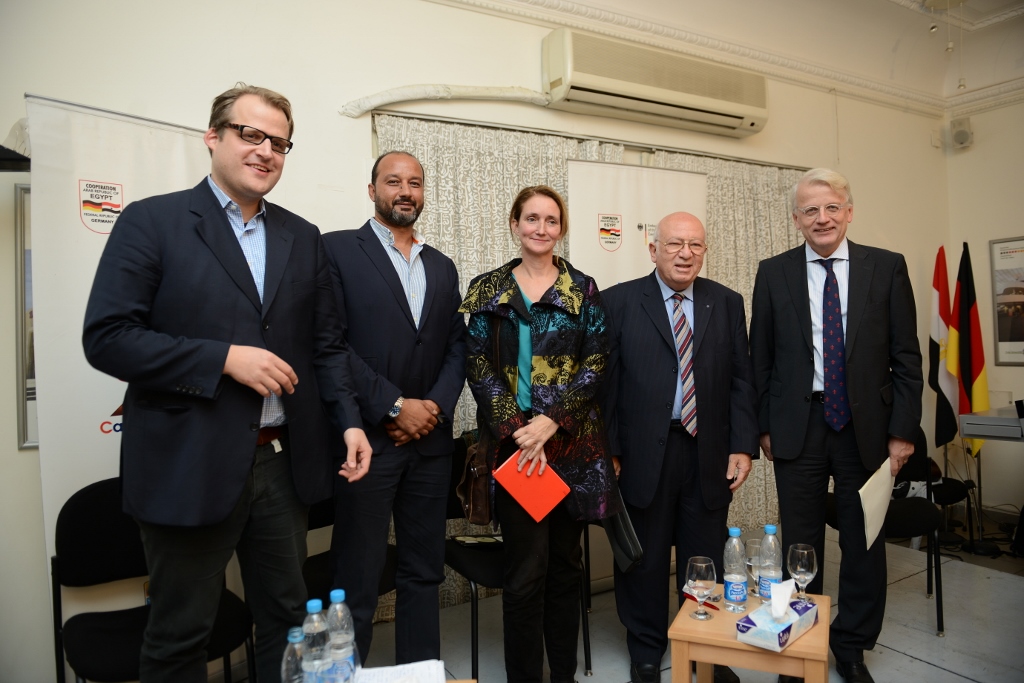
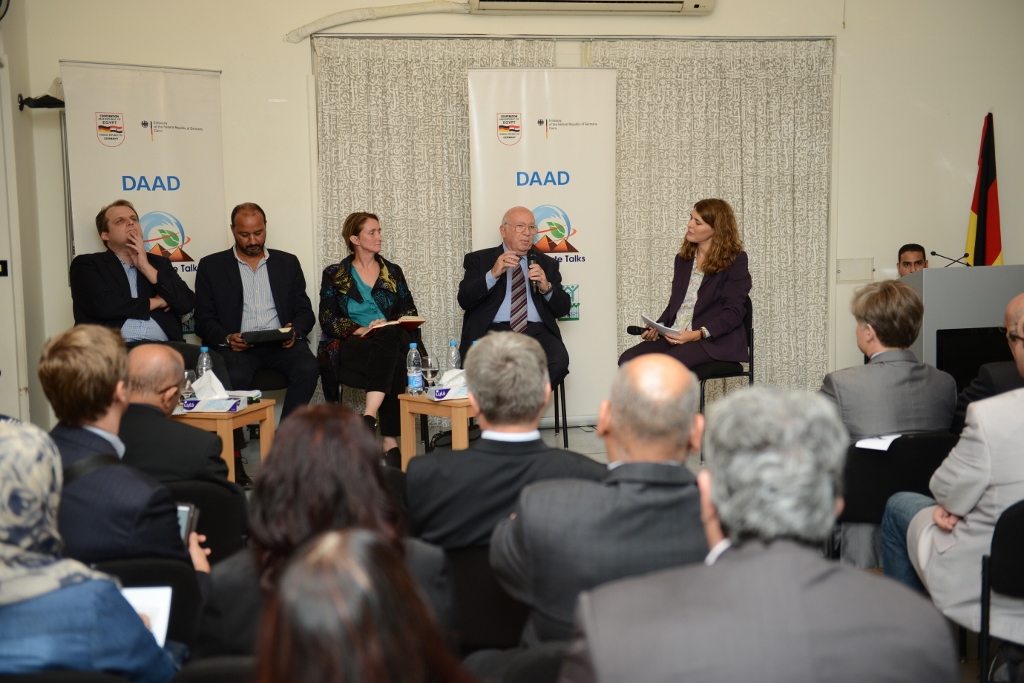
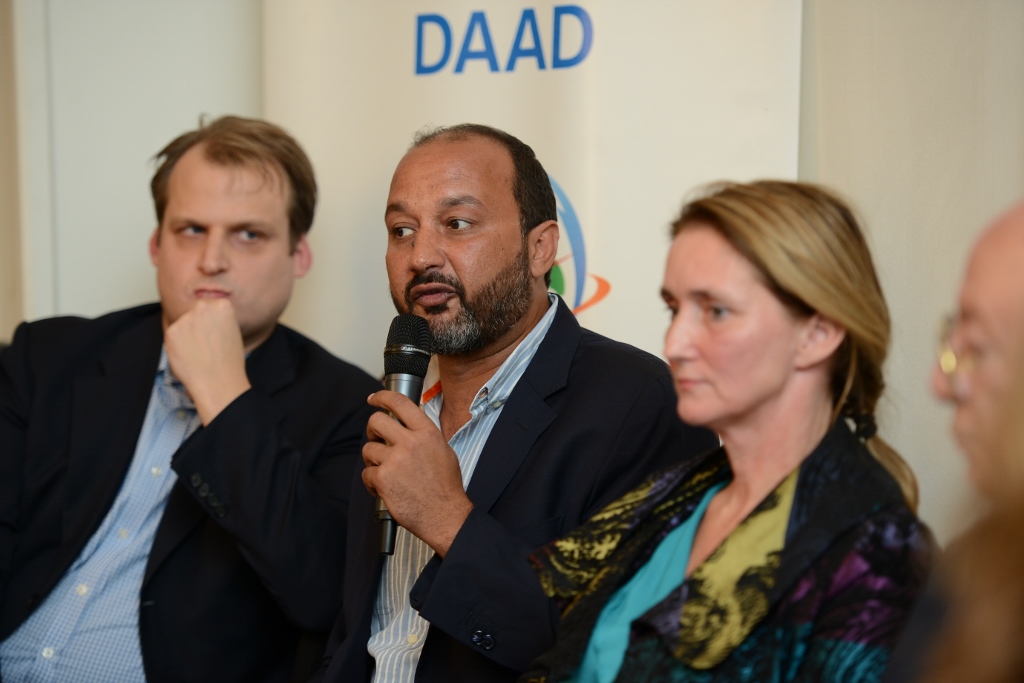
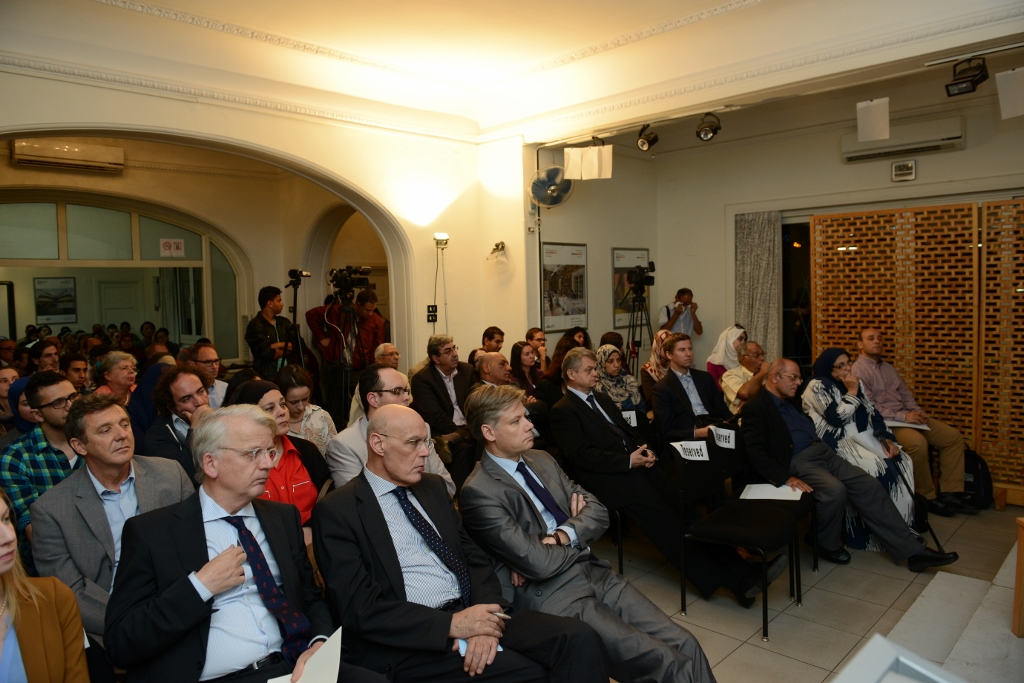
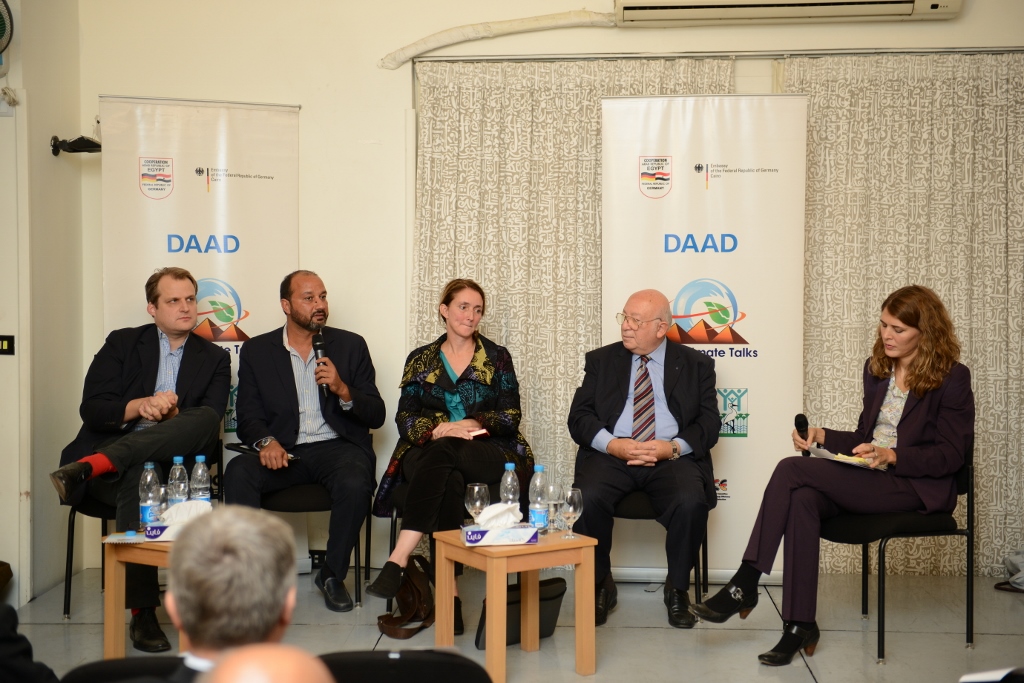
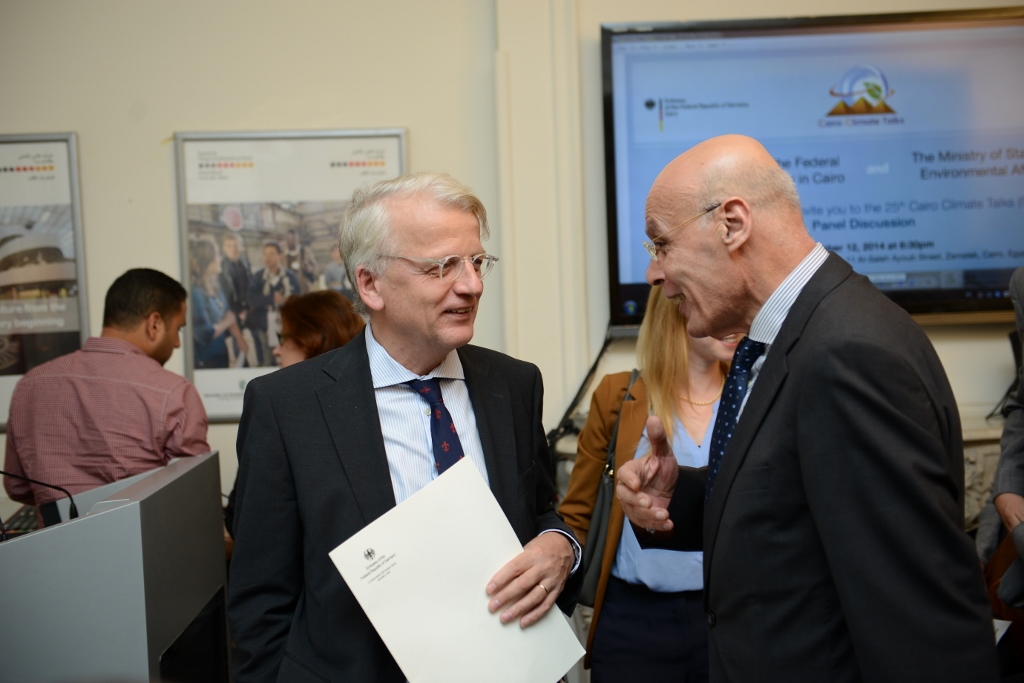
Are you interested? Don’t miss out by registering to our events. We hope to see you there.
